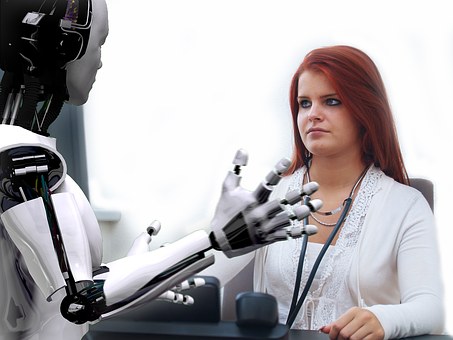Take responsibility away from human beings and hand it over to robots: because of the answers it provides and the solutions it recommends, the amended version of the Delvaux Report, adopted by the European Parliament’s Legal Affairs Committee last Thursday, has made the development of a legal structure to regulate the use of robots more difficult.
The legislative own-initiative report from the Eurodeputy Mady Delvaux was adopted on January 12th by 17 of the 21 deputies of the European Parliament’s Legal Affairs Committee present that day. The aim of the text is to create a European legal structure dedicated to robotics and artificial intelligence. Though questioning robots is legitimate, the report provides the wrong answers both on a technical level and on a judicial one, and was made even worse by the [1] amended version adopted last Thursday (cf. Droit des robots au Parlement européen : un rapport idéologique sur une question légitime).
Without giving a definition of the nature of robots, the report’s objective is to create on the “long term” a special legal status of “electronic people” for autonomous robots[2]. They however remain machines, and the French law only grants legal personality to real and physical human beings or groups of people (moral people).
Besides, the Delvaux Report wishes to establish a compulsory insurance system and a compensation fund to guarantee a total compensation of any victim of robots, according to very unclear and debatable conditions. This compensation fund, may it be individual for each robot or common for a category of robots would exempt all makers, users, owners, or even any human being from being responsible in case of damage caused by a robot.
Finally, the report suggests a modification of the social system and taxation system, and the introduction of a basic income[3], as solutions to try and compensate for employment losses caused by robotics. Mady Delvaux admits that this is a controversial point, but in the report she entrusts each Member State with the task of finding its own effective answer: “If many people were to lose their jobs to robots, we shall have to insure they maintain a decent life. Each Member State is invited to reflect over this”.
This report is “a European legislation to give rights to robots, and promotes the transhumanist utopia of enhanced Men”, comments Europe for Family[4], which calls upon the Eurodeputies “to rethink this report in order to establish a more precise legal European framework, less ideological and better adapted to all Member States”. Europe for Family believes that “to put robots on the same level as human beings by giving them a legal personality is unacceptable and in contradiction with the very words of deputy Mady Delvaux, who reminds people that ‘robots are and remain at the service of men’”. Changes in social and taxation systems and the introduction of an undefined basic income could produce effects we cannot easily measure today”.
This legal initiative obliges the European Commission to transcribe it under the form of constraining directives for all Member States. The Commission can choose not to do so but it will therefore have to justify why. The Parliament will adjudicate over this report on February 15th in plenary session in Strasbourg; the propositions will have to be adopted by an absolute majority.
[1] 64 compromise amendments have been adopted
[2] Compromise amendment 47 adopted on Thursday 12th January: “On the longer term, create a specific legal personality, so that at least the most autonomous and sophisticated robots may be granted the status of electronic person, responsible for fixing any damage they may cause, and if possible apply the status of electronic personality in case robots were to make autonomous decisions or interact with people independently.
[3] Compromise amendment 33 adopted Thursday 12th January: « Considering the effects that the deployment of robots and of artificial intelligence could have, the emphasis is put on the importance of anticipating changes in society; the Commission is requested to think about the various possible scenarios and their consequences on the reliability of the security systems of the Member States; believing there should be a new debate on new employment models and on the sustainability of our tax and social security systems based on the existence of a sufficient income, by including the possible introduction of a basic income.
[4] Europe For Family promotes the Father-Mother-Child family and the rights of children in front of the European institutions and, on that basis, defends human beings over machines. For more information or to act: contact@europeforfamily.eu.

